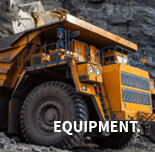Paper-based processes All requests to dealers are made via email or
letters. Dealers deliver documents via paper, email, or faxes. Someone in the company
is responsible for preparing a package of such documents. Such packages are then routed
for review and approval in paper form.
Email based sharing
In this scenario, companies request documents from dealers via email. Company
representatives collect the documents, print them, and maintain a paper-based
document package for internal routing and review. In some cases, the documents
are received from the dealer via an application system, but all internal reviews
are carried out on paper.
File Repositories
In this scenario, documents are requested and received electronically via email. The
documents are then stored in an electronic file repository which could be a file server
or a file storage system. Some servers provide workflow-support so reviewers can review
the dealer documents through such internal workflow/systems.
Full-Solution
At this level, companies have a fully integrated system to configure and control their
documentation requirements. Dealers submit documentation and internal users review the
submitted documents fully electronically, including e-signatures and workflow-driven
routings.
This insight document explores the challenges in the manual/semi-automated processes
adopted at many companies. As the world is rapidly adapting to virtual teams with many
remote teammates, challenges with such processes are immense.
Companies face a variety of challenges in managing dealer package and contract documents through manual or semi-automated processes. These extend from the level of difficulties in keeping track of all such documents to challenges in reviewing documents and internal routing, reviews and approvals. Here are some of the key challenges that we found based on our understanding of the industry
Inconsistency of Requirements & Communication
Managing a wide range of dealer actions consistently and efficiently requires diligence, persistence, and on-going vigilance. Requirements and documentation tend to change from time to time and different people may implement different standards. Without a good technology solution this is complicated by a lack of document version control, especially when there is inconsistency in the data requested from dealers.
Compilation of Documents
Dealer personnel need to create, collect and compile documents required by the manufacturer. They frequently do not have a good mechanism for compiling and managing all of the documents in one place. Usually Manufacturers will generally provide a checklist of requirements to dealers, but the process is still cumbersome and error-prone. It often happens that dealers do not submit the right documents, leading to time-consuming discussions and clarifications. Additionally, as dealers submit their documents (usually via email), the Network Development personnel now have the task of compiling files and paperwork on their end.
Lack of Visibility
A significant amount of communication and follow up is required between the company and the dealers during the time the dealer is working on preparing the package documents. During this time the Network Development personnel have very little information on whether the dealer is actually working on the package or not; and if they are working on it, to what extent have they completed their work. This requires additional efforts to stay on track with all required follow-up activities.
Delays in Processing Packages
Dealers are challenged with gathering and completing the requested package information and submitting it in a timely manner to the OEM for processing and approval. Failure to submit the requested data and documents in a timely manner can lead to delays and typically requires extra attention. In some cases, restarting the process from the beginning may be required.
Logistics & Shipment Costs
Storing, printing, and shipping documents domestically or internationally is expensive and time consuming if a company has several dealerships in a nationwide or international network requiring dealer actions. One company talked about the cost of obtaining and sending back documents to and from the document storage companies. While these are small costs for every transaction, they quickly add up to a significant amount.
Difficulty Accessing Old Documents
Looking up and referencing old documents supporting previous dealer actions can be a daunting task. It is difficult to retrieve data due to paper documents being stored in file cabinets, at an off-site storage facility, or in a difficult to navigate database archive. Failure to retrieve this historical data quickly slows the processing of new dealer actions and makes the dealer development function less productive.
When Things Go Wrong: Litigation
Unfortunately, circumstances can arise when it is necessary to litigate or defend an action with a dealer. Complete, comprehensive, accurate and easily accessible documentation is critical to help assure a successful and cost-effective outcome.






Arvind is the Founder and CEO of Optimum Info, a global company providing tailored software solutions for Manufacturers to improve franchise network development, dealer profitability, field operations, and after-sales processes. Arvind has extensive experience in bringing together Business Solutions & Software Technology for Automotive, Powersports and Equipment companies.